German Vocabulary: Things Around The House
German Vocabulary: Things Around the House
Requested by @tiedtonguesandflashcards
House - das Haus Door - die Tür Window - das Fenster Carpet - der Teppich
Lamp - die Lampe Light switch - der Lichtschalter Ceiling Fan - der Deckenlüfter Light bulb - die Glühlampe or die Glühbirne
Bedroom - das Schlafzimmer Bed - das Bett Pillow - das Kissen Blanket - die Bettdecke Closet - der Schrank To Sleep - schlafen To dream - träumen Bureau/Dresser - die Kommode Desk - der Schreibtisch
Living room - das Wohnzimmer Furniture - die Möbel (plural) Couch - die Couch Sofa - das Sofa Armchair - der Sessel Chair - der Stuhl Curtain - der Vorhang TV - der Fernseher Bookcase/Bookshelf - das Bücherregal Fire place - der Kamin Chimney - der Schornstein
Bathroom - das Badezimmer Mirror - der Spiegel Toilet - die Toilette Shower - die Dusche Bathtub - die Badewanne Water faucet - der Wasserhahn To shower - duschen To bathe - baden To wash oneself - sich waschen
Laundry - die Wäsche Laundry room - Wäschezimmer Washing Machine - die Waschmaschine Dryer - Wäschetrockner Broom - der Besen
Kitchen - die Küche Refridgerator - der Kühlschrank Blender - der Küchenmixer or der Mixer Oven - der Ofen Stove - der Herd Oven mitt - der Topfhandschuh Microwave - die Mikrowelle To cook - kochen To bake - backen To burn - anbrennen Dish washer - der Geschirrspüler or die Spülmaschine
Garage - die Garage Car - das Auto Bike - das Fahrrad Lawn mower - der Rasenmäher To mow - mähen Garbage can - die Mülltonne Rake - die Harke
More Posts from Earthquakedeer and Others


Here are some colors, a couple vocab, and grammar! Sorry I haven’t been posting much lately. School has been pretty busy. I plan on trying to make daily posts though!
me: i spend 90 minutes a day learning french, and now i am able to read Harry Potter in french without problem
also me: i forgot the word paper towel in english i don't know who i am anymore
![[441] クマ | kuma | bear](https://64.media.tumblr.com/e3e335b3c81122a414395f36843c10b2/tumblr_ov7l3ocRBh1v0vbxgo1_500.png)
[441] クマ | kuma | bear
Kanji available on Patreon!
Be sad but get up. You don’t have to shower. You can put on the same clothes you wore yesterday. Nobody will care. The sky is blue, wildflowers are blooming by the side of the road. Strangers have stories to tell. Go for a walk, go for a drive, go to a greenhouse, a bookstore, a movie theater. You can stay in bed but nothing is going to happen there. Sometimes you’ve really just got to get the fuck up.
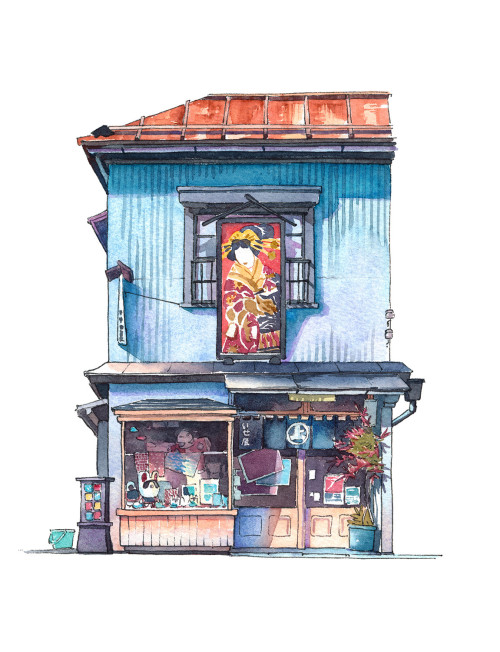
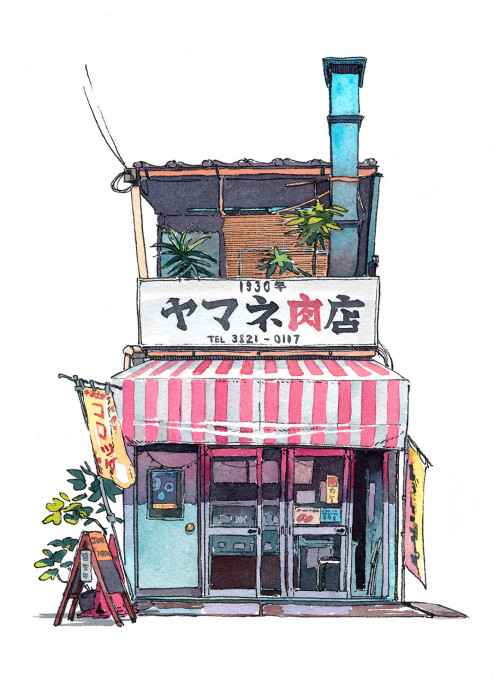
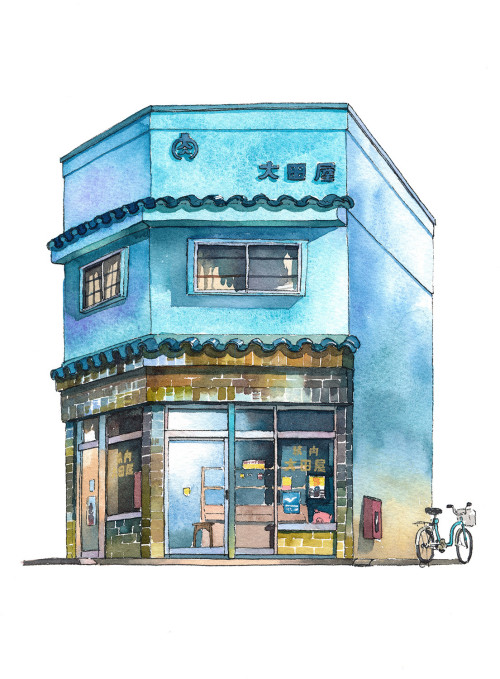


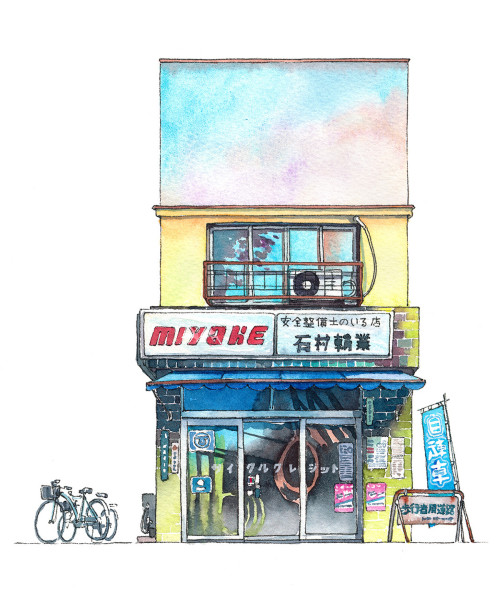

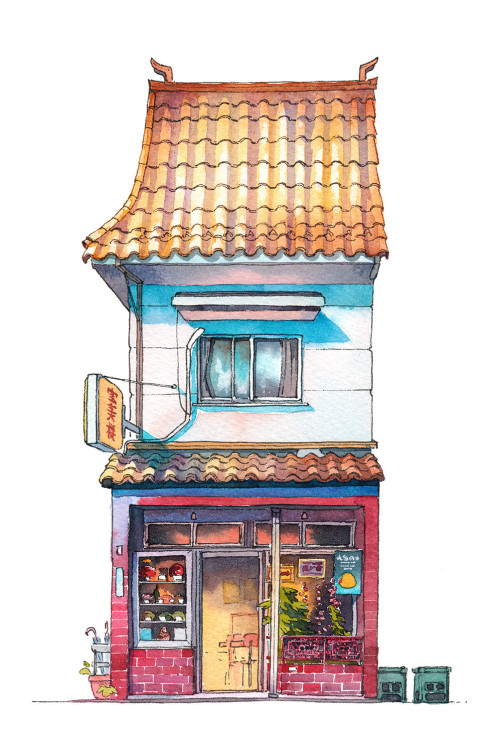
Tokyo Storefronts Series by Mateusz Urbanowicz.
Artists on tumblr.



JLPT | 日本語能力試験 Hey guys, throughout my time running this studyblr I’ve received a lot of questions regarding the JLPT exam. Personally, I myself have never taken the exam nor am I planning on doing so in the near future, however I have asked my closest friends around me who have taken the exam in the past, or who are currently studying for it, for advice regarding how to prepare for the exams. So below is some advice, information, and resources that I’ve gathered over time. I hope it’ll be able to help answer some of your questions! What is the JLPT and why is it important? The Japanese Language Proficiency Test is an internationally recognised exam that measures the proficiency of non-native Japanese speakers. There are five levels, N5, N4, N3, N2, and N1. N5 is the lowest level, which is equivalent to basic conversational Japanese skills, and N1 is the highest level, equivalent to that of a native speaker. The JLPT is important say for example, if you plan on working in Japan in a job that requires you to use Japanese. How can I take the JLPT? The test is held twice a year (July and December) in some cities, and just once a year in other cities (December). On the official website is a list of institutions that hold the JLPT. Which level should I take? You can attempt sample questions from the different levels on the official website in order to understand which level you are. What will I be tested on? The JLPT tests examiners on their vocabulary, grammar, reading, and listening skills. For a full view of all the items you will be tested on, check out the official website for more information. How should I study for the JLPT? There are a lot of websites online with information, resources, and study-guides for each level of the JLPT. This website hosts pdfs with practice tests, official workbooks, mock tests, and answer sheets for each level of the JLPT. It’s a good idea to purchase a textbook so that you can learn new vocabulary, grammar, and kanji, as well as get in some reading practice or practice exercises. - For N5/N4 I can recommend the Genki series or Minna no Nihongo. - For N3 Jitsuryoku Up! Nihongo Nouryoku Shiken has been recommended. - For N2/N1 日本語総まとめ and Kanzen Master (新完全マスター) books have been recommended. I’ve been told kanji is used quite sparingly in the N5/N4 exams, so I’ve been advised that you shouldn’t spend all of your time studying kanji for those exams. A good idea is to focus on the recommended kanji for each level, and spend more time on vocabulary, grammar, and more time on reading and listening comprehension. You should try to study every day if possible. Studying/cramming for a certain amount of hours in just one session each week is not a good way to retain information. You don’t have to study in the traditional sense every single day, it can be anything from reviewing vocabulary, going through kanji flashcards, or talking with Japanese friends. Another good tip is to time yourself with the appropriate exam timings when taking a practice test online to see how you score under exam conditions. Recommended websites and apps: - Memrise - for vocabulary - Anki decks - for kanji - iTalki - speak with conversation partners or Japanese teachers - Nihongo Ichiban - JLPT materials - JapaneseTest4You - JLPT materials - Jisho - good online dictionary - Nihongonomori - JLPT Youtube channel - Tanos - JLPT materials Textbook PDF’s: - Genki I - Genki II - Genki Answer Key - Japanese for Busy People - Kanji Look and Learn - A Dictionary of Basic Japanese Grammar - Tae Kim’s Japanese Grammar Guide Disclaimer: As I mentioned before I’ve never taken the JLPT exam, nor do I plan on taking it anytime soon, so I cannot be certain that all the informatin I’ve listed is correct. If I’m wrong about anything please let me know! 頑張ってください!
N5 verb list
会う (あう)- to meet
開く (あく)- to become open
開ける (あける)- to open
上げる (あげる)- to give
遊ぶ (あそぶ)- to play, to make a visit
あびる - to bathe, to shower
洗う (あらう)- to wash
ある - to be, to have (inanimate)
歩く (あるく)- to walk
言う (いう)- to say
行く (いく)- to go
居る (いる)- to be, to have (animate)
要る (いる)- to need
入れる (いれる)- to put in
歌う (うたう)- to sing
生まれる (うまれる)- to be born
売る (うる)- to sell
起きる (おきる)- to get up
置く (おく)- to put
教える (おしえる)- to teach, to tell
押す (おす)- to push, to stamp
覚える (おぼえる)- to remember
泳ぐ (およぐ)- to swim
降りる (おりる)- to get off, to descend
終わる (おわる)- to finish
買う (かう)- to buy
返す (かえす)- to return something
帰る (かえる)- to return, to go back
かかる - to take time or money
書く (かく)- to write
かける - to call by phone
貸す (かす)- to lend
借りる (かりる)- to borrow
消える (きえる)- to disappear
聞く (きく)- to hear, to listen, to ask
切る (きる)- to cut
着る (きる)- to put on
曇る (くもる)- to become cloudy/dim
来る (くる)- to come
消す (けす)- to erase, to turn off
答える (こたえる)- to answer
コピーする - to copy
困る (こまる)- to be worried
咲く (さく)- to bloom
差す (さす)- to stretch out, to raise
散歩する (さんぽする)- to stroll
死ね (しね)- to die
閉まる (しまる)- to close, to be closed
閉める (しめる)- to close something
締める (しめる)- to tie
知る (しる)- to know
吸う (すう)- to smoke
住む (すむ)- to live in
する - to do
座る (すわる)- to sit
掃除する (そうじする)- to clean, to sweep
出す (だす)- to put out
立つ (たつ)- to stand
頼む (たのむ)- to ask
食べる (たべる)- to eat
違う (ちがう)- to differ
使う (つかう)- to use
疲れる (つかれる)- to get tired
着く (つく)- to arrive at
作る (つくる)-to make
つける - to turn on
勤める (つとめる)- to work for someone
出かける (でかける)- to go out
できる - to be able to
出る (でる)- to leave, to go out
取る (とる)- to take something
撮る (とる)- to take a photo or film
鳴く (なく)- to chirp, roar, croak etc
無くす (なくす)- to lose something
習う (ならう)- to learn
並ぶ (ならぶ)- to line up, to stand in line
並べる (ならべる)- to line up, to set up
なる - to become
脱ぐ (ぬぐ)- to take off clothes
寝る (ねる)- to sleep, to go to bed
登る (のぼる)- to climb
飲む (のむ)- to drink
乗る (のる)- to ride, to get on
入る (はいる)- to enter, to contain
はく - to wear, to put on trousers
始まる (はじまる)- to begin
走る (はしる)- to run
働く (はたらく)- to work
話す (はなす)- to speak
貼る (はる)- to stick
晴れる (はれる)- to be sunny
引く (ひく)- to pull
弾く (ひく)- to play an instrument
吹く (ふく)- to blow (wind)
降る (ふる)- to fall (rain, snow)
勉強する (べんきょうする)- to study
曲がる (まがる)- to turn, to bend
待つ (まつ)- to wait
磨く (みがく)- to brush teeth, to polish
見せる (みせる)- to show
見る (みる)- to see, to watch, to look
持つ (もつ)- to hold
休む (やすむ)- to rest
やる - to do
行く (ゆく)- to go
呼ぶ (よぶ)- to call out, to invite
読む (よむ)- to read
練習する (れんしゅうする)- to practice
分かる (わかる)- to be understood
忘れる (わすれる)- to forget
渡す (わたす)- to hand over
渡る (わたる)- to go across
Japanese Vocab 10月28日

問題 (もんだい) question, problem
この問題用紙は、全部で31ページあります。
This question booklet has 31 pages.
聞く (きく) to ask
先生に聞きましょう
Let’s ask our teacher.
Keep reading
Learning how to study:
Understand that studying is not the same as doing homework.
Create a study plan.
Making a timetable.
Have a good study space.
Manage your time.
Guide to bullet journals.
How to prioritise tasks
A guide to different planners
Apps for scheduling
Take effective notes.
Guide to note taking.
Taking Notes that Work (article by Dustin Wax)
Colour coding your notes
Taking lecture notes visual (by strive-for-da-best)
Getting the most from lectures
An example of Cornell notes (by overmycoldcoffee)
Read text before and after class.
SQ3R Reading
Study smart.
Guide to studying with mindmaps
Visual guide to mindmaps
The Pomodoro technique
Feynman Technique
How to Hermione the Shit out of your studying (byhermionetheshitoutofstudy)
Things top students do (by study-studymore-studyhard)
Learning how to learn (by strive-for-da-best)
Use test taking strategies.
Maintain your studies.
Manage your stress.
Getting a good night’s sleep
Stress relief techniques and ideas
23 Science Backed Ways to Reduce Stress
25 Destressing Techniques
Failure anxiety
Do nothing for 2 minutes
Calm (meditation site)
-
 joyaeb liked this · 5 months ago
joyaeb liked this · 5 months ago -
 loula711 reblogged this · 1 year ago
loula711 reblogged this · 1 year ago -
 nukteross-al liked this · 1 year ago
nukteross-al liked this · 1 year ago -
 dopemusicfan liked this · 2 years ago
dopemusicfan liked this · 2 years ago -
 momfriendbutincompetent liked this · 2 years ago
momfriendbutincompetent liked this · 2 years ago -
 bambi-thedeer liked this · 3 years ago
bambi-thedeer liked this · 3 years ago -
 everything-german reblogged this · 3 years ago
everything-german reblogged this · 3 years ago -
 everything-german reblogged this · 3 years ago
everything-german reblogged this · 3 years ago -
 everything-german reblogged this · 3 years ago
everything-german reblogged this · 3 years ago -
 erin-watson-holmes liked this · 3 years ago
erin-watson-holmes liked this · 3 years ago -
 love-letters-to-kageyama liked this · 4 years ago
love-letters-to-kageyama liked this · 4 years ago -
 figuredumpling reblogged this · 4 years ago
figuredumpling reblogged this · 4 years ago -
 romanticizingmydumblittlelife reblogged this · 4 years ago
romanticizingmydumblittlelife reblogged this · 4 years ago -
 noisywinnertacoknight liked this · 4 years ago
noisywinnertacoknight liked this · 4 years ago -
 vibing-spirit liked this · 4 years ago
vibing-spirit liked this · 4 years ago -
 bigcupofcoffeeplease liked this · 4 years ago
bigcupofcoffeeplease liked this · 4 years ago -
 babystudentoperatorcreator liked this · 4 years ago
babystudentoperatorcreator liked this · 4 years ago -
 toothbrushabsurdity liked this · 4 years ago
toothbrushabsurdity liked this · 4 years ago -
 rorynb liked this · 4 years ago
rorynb liked this · 4 years ago -
 myskinstartstocreep liked this · 4 years ago
myskinstartstocreep liked this · 4 years ago -
 wannbe-polyglot reblogged this · 4 years ago
wannbe-polyglot reblogged this · 4 years ago -
 shrimp-spaghetti liked this · 4 years ago
shrimp-spaghetti liked this · 4 years ago -
 verbaorandi liked this · 4 years ago
verbaorandi liked this · 4 years ago -
 acastered liked this · 4 years ago
acastered liked this · 4 years ago -
 deaddarian liked this · 4 years ago
deaddarian liked this · 4 years ago -
 littlebucgs reblogged this · 4 years ago
littlebucgs reblogged this · 4 years ago -
 littlebucgs liked this · 4 years ago
littlebucgs liked this · 4 years ago -
 blvckrainbows liked this · 4 years ago
blvckrainbows liked this · 4 years ago -
 corvidcantina liked this · 4 years ago
corvidcantina liked this · 4 years ago -
 72275539 liked this · 4 years ago
72275539 liked this · 4 years ago -
 sylvanavanolffen liked this · 4 years ago
sylvanavanolffen liked this · 4 years ago -
 language-nerd-blog reblogged this · 4 years ago
language-nerd-blog reblogged this · 4 years ago -
 cucumber-oil liked this · 4 years ago
cucumber-oil liked this · 4 years ago -
 floatingwithestars liked this · 4 years ago
floatingwithestars liked this · 4 years ago -
 skankysoul liked this · 4 years ago
skankysoul liked this · 4 years ago -
 sumykute56 reblogged this · 4 years ago
sumykute56 reblogged this · 4 years ago -
 silentcassio liked this · 4 years ago
silentcassio liked this · 4 years ago -
 just-a-cruel-joke-on-me reblogged this · 4 years ago
just-a-cruel-joke-on-me reblogged this · 4 years ago -
 pleasurehunter2000 liked this · 4 years ago
pleasurehunter2000 liked this · 4 years ago -
 la-galaxie-langblr reblogged this · 4 years ago
la-galaxie-langblr reblogged this · 4 years ago -
 eepysylveon liked this · 4 years ago
eepysylveon liked this · 4 years ago -
 jankanab-blog liked this · 4 years ago
jankanab-blog liked this · 4 years ago -
 amdg17 liked this · 4 years ago
amdg17 liked this · 4 years ago
Just a person learning Japanese. Self-learner. If you're also studying Japanese and want to practice with someone (and you're also very much a beginner) then message me! はじめまして! さびーなです。よとしく!
196 posts